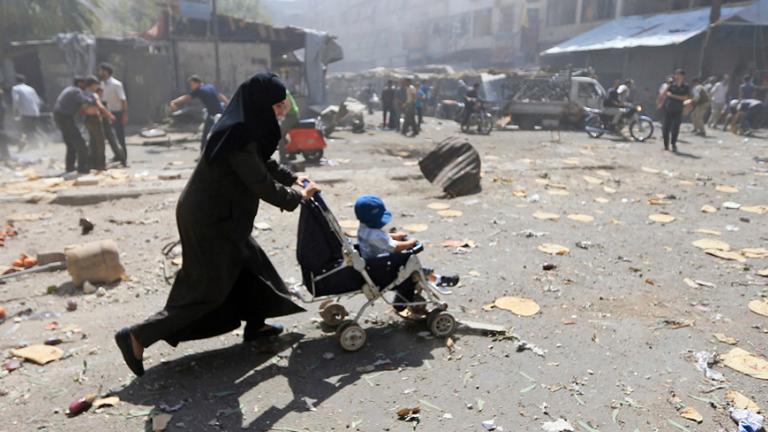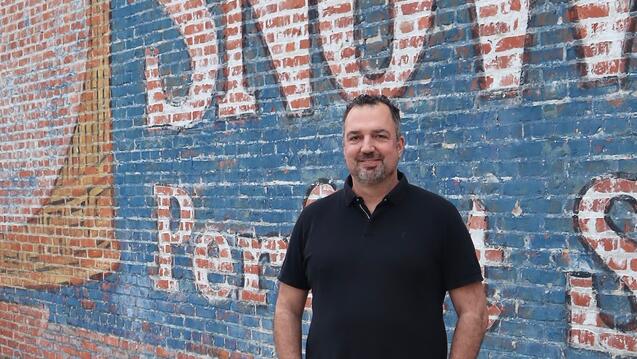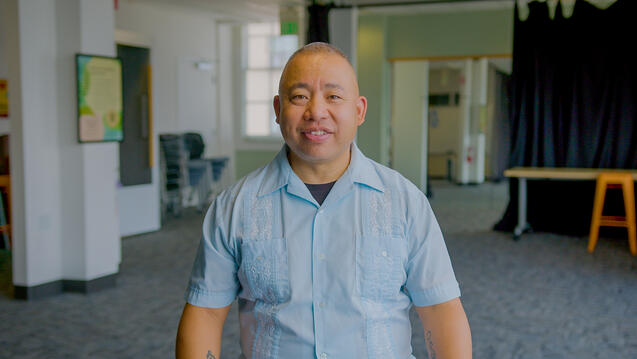Playwright and activist Alex Burger brings his global experience into the CIIS MFA classroom, teaching art as transformation, and crisis as creative fuel.

Syria: The End of Rojava Experiment?
Andrej Grubacic reflects on the situation in Syria
The Turkish state’s invasion of northeastern Syria has brought a dangerous state of war to the only relatively stable region in the country, threatening the lives of thousands with indiscriminate shelling, mass displacement and continuous bombardment. The Turkish attack threatens to do enormous, perhaps irreversible, damage to international standards of law, human rights and human freedom. It also threatens to destroy a unique experiment in feminist social transformation.
Sadly, there have been numerous cases of invading armies committing war crimes over the last century; but it is rare indeed for the commander to openly declare ethnic cleansing and war crimes as the main objective of his military operation and for the “international community” to respond with almost universal silence—or even support. This is a direct and explicit attempt to change the rules on the ground.
Turkish President R. T. Erdoğan has stated explicitly and repeatedly that it is his intention to militarily ethnically cleanse the Kurdish population of over one million people that live in an arc across the Turkish border from Kobane to Derik and to replace that population with members of different ethnic groups. One year ago, similar declarations were made before invading Afrin, another Kurdish-majority region in Syria. Since then, the originally 95 percent Kurdish population of Afrin has been reduced to a minority, with thousands killed or driven from their homes and the Kurdish language banned in schools. The municipality is now governed by jihadist groups backed by Turkey.
In other words, Erdoğan has declared his intention to violate three different key principles of international law clearly established in the Geneva Conventions and Nuremberg War Crimes Tribunals: 1. the crime of aggression, 2. the crime of ethnic cleansing, 3. the crime of resettling populations in conquered territory—even now his forces are using NATO-supplied weaponry to illegally bomb churches, hospitals, cultural monuments and civilian infrastructure.
Despite all this, the UN security council has failed to condemn the invasion and most national governments have taken no practical steps to stop it. This could be the end of the Nuremberg Principles, which, although often violated in practice, were at least recognized by all international actors as the principles that should govern military conflicts. Acts previously considered outrageous, even genocidal, risk being normalized.
What has been happening in Rojava for the last seven years—the attempt to create a society based on bottom-up, direct democracy, the liberation of women, and ecological principles as essential to any conception of human liberation—is, ultimately, the real threat to authoritarians like Erdogan, indeed, to authoritarians everywhere, and the real basis for their endless talk of “security concerns.” Anyone who dares attempt an experiment that puts women at the heart of the liberation process must be punished so severely that no one will even think about doing it again. The Rojava experiment may be imperfect in a number of ways, as any such experiment must be, but it holds out the prospect of changing the game and creating new rights and freedoms rather than robbing us of what little freedom we have. It is important to humanity everywhere that such spaces of hope are preserved.
Anthropology and Social Change Chair Andrej Grubacic talks with KPFA radio host Mitch Jeserich about Rojava the autonomous, mostly Kurdish region of Northeastern Syria. Listen to the episode: The Fate of Rojava, the Autonomous, Majority Kurdish Region of Syria.
Andrej Grubacic is the founding Chair of the Anthropology and Social Change department at CIIS.
Related Academic Programs
Related News
Fernando Ona, Chair of Transformative Inquiry at CIIS, carried questions from Iraq to the classroom—and found space to explore them.
Discover the latest works from CIIS faculty—spanning psychology, spirituality, ecology and the arts. These recent publications show how our community is advancing scholarship and creativity in service of personal and collective transformation.



